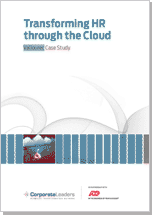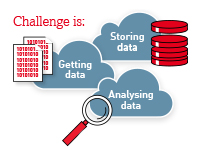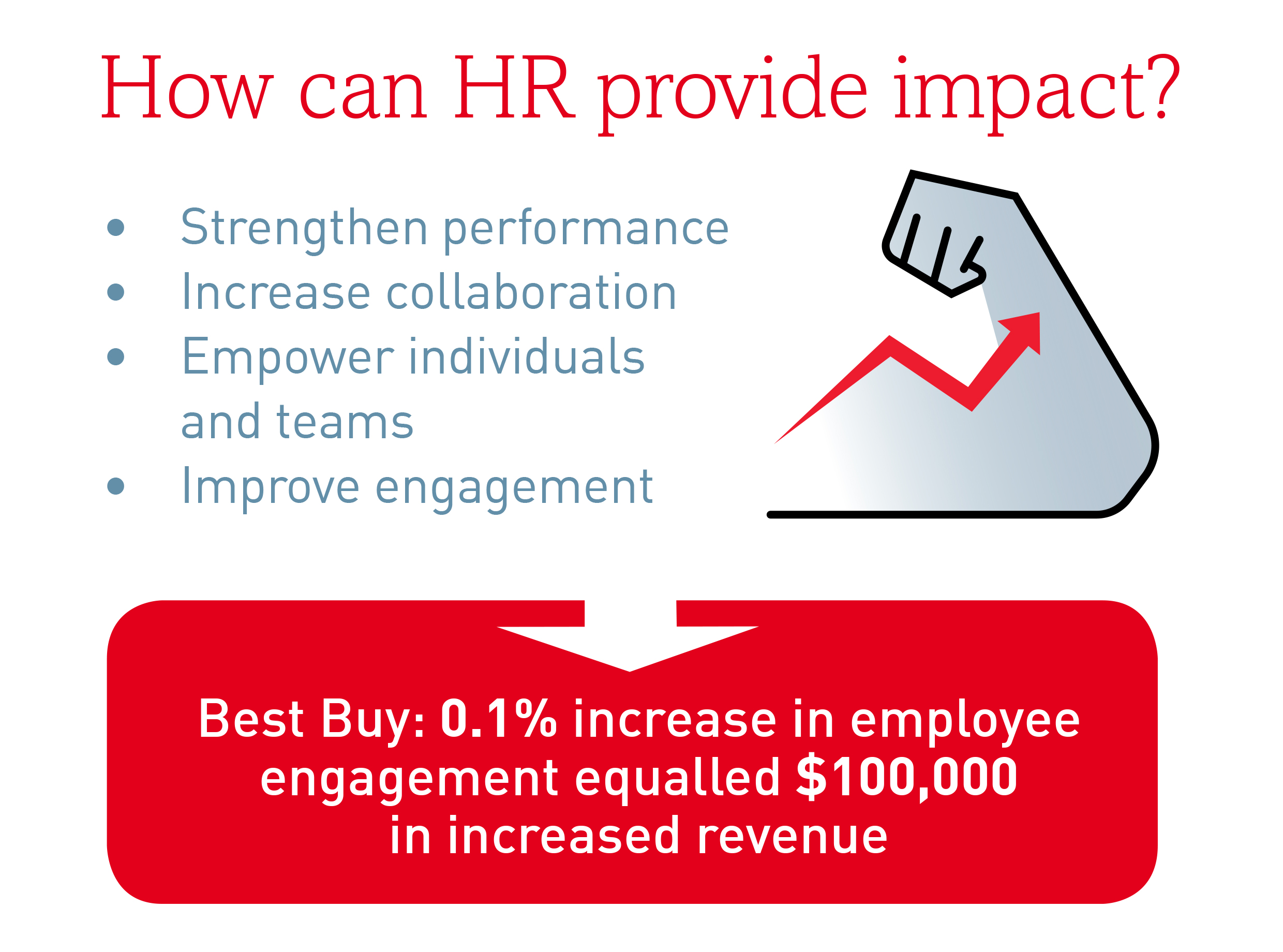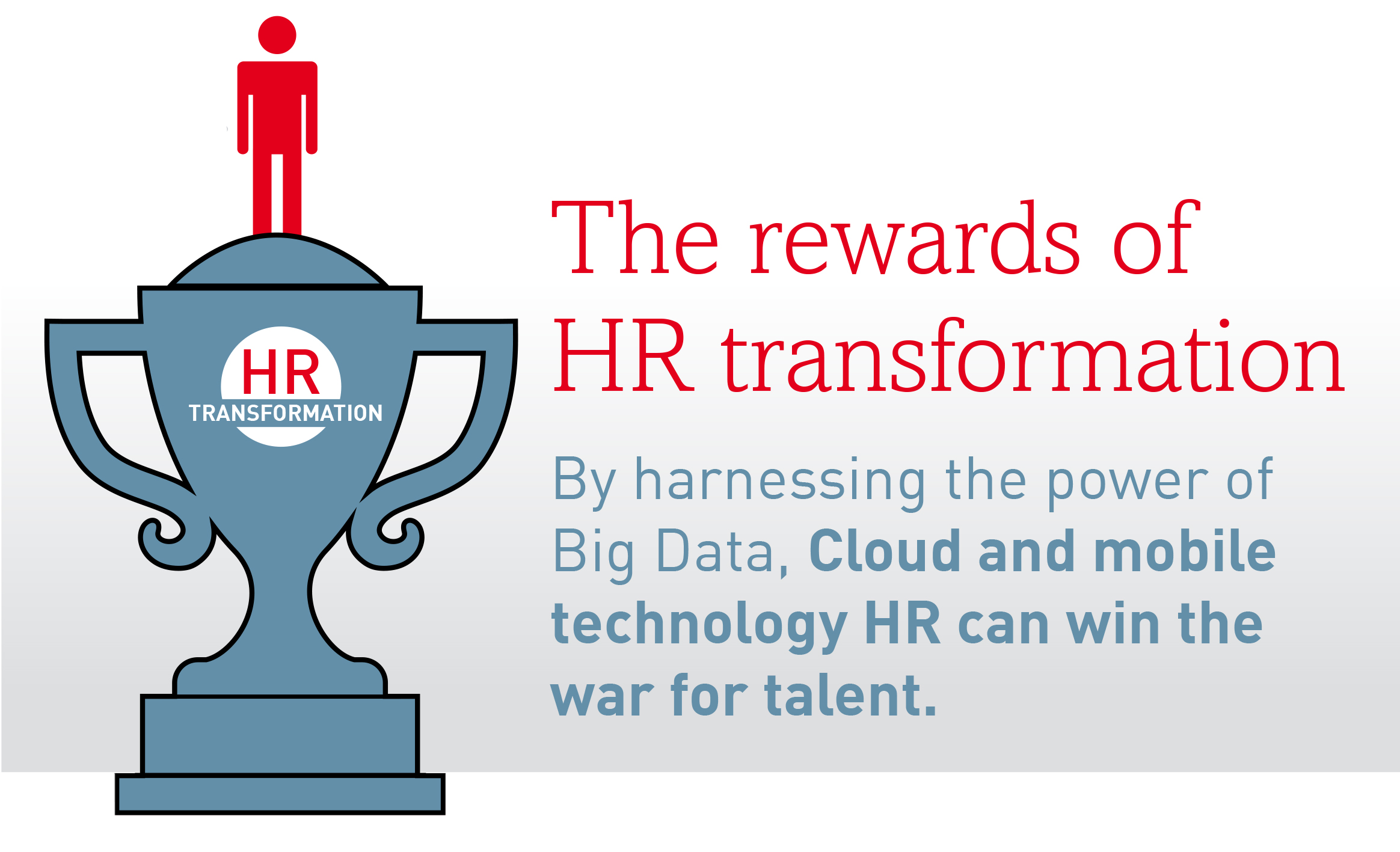 |
 |
 |
 |
| Human Capital Management |
| HR transformation through the Cloud |
| A recipe for business growth |
This is the first in a series of articles looking at how Cloud computing is driving HR transformation, giving HR teams in leading companies a key role in delivering business growth. |
| Struggling to integrate employees |
| A recent book [1] identifies lack of planning and negotiation mistakes among the reasons why so many M&As fail. But cultural and other people-related issues are also to blame, with many newly-merged businesses struggling to integrate employees into a single workforce and to harmonise HR policies and processes. Some even lack clearly visible data on their global headcount - let alone on employee engagement. |
 |
| Market Expansion |
| As the global economy returns to growth, companies are looking for new markets - or a bigger share of existing ones. Some take an organic approach to growth, opening offices in new locations or developing new products. For others, a merger or acquisition (M&A) makes more sense, providing access to new customers and markets, while potentially reducing costs. So it’s not surprising that mergers are booming, with Bloomberg recently reporting that global M&A activity in the first half of 2014 had grown at its fastest pace in 14 years. Yet research puts the failure rate for M&As at anything between 40 and 80 per cent. |
| Can HR support organic growth, expansion of M&As? |
| Companies that take an organic approach to growth often experience similar difficulties as they rapidly increase the size of their workforce or expand internationally. In both cases, integration problems add costs that can soon cancel out the gains that the merger or accelerated organic growth were supposed to deliver. |
| Re - shaping HR |
| HR has a critical role to play both in preventing post-merger disasters and supporting business growth more generally. Unfortunately, most HR teams are just not up to the job. HR leaders recognise this, with less than eight per cent of those surveyed by Deloitte [2] are confident that their teams have the skills to meet the challenges of today’s global environment. |
| HR transformation supports expansion |
| HR teams can support business expansion only if they have gone through a major transformation. That means re-shaping their operations by putting the right people and processes in place and using the right HR technology. |
| According to Dirk Russell, EMEA HRIS Director at Covidien, which has gone through this process, a successful HR transformation facilitates a company’s expansion into new markets. ‘At its simplest, we can simply add the parameters of a new country and plug it into the system,’ he says. ‘There is obviously some additional lead-time involved with setting up other HR services, but the plug-in-and-play approach is pretty well tested.” |
| Is your HR providing impact? |
| Over the last 20 years, many HR functions have set out on a transformation journey, often creating shared-service centers, centers of expertise and new HR business partner roles. According to research by Bersin & Associates [3], ‘high-impact HR organisations’–those that have succeeded in transforming themselves –are concerned not only with providing low-cost service. They also focus on activities that strengthen business performance, such as encouraging collaboration and employee empowerment and engagement. At Best Buy for example, the value of a 0.1% increase in employee engagement at a store is valued at more than $100,000 in the store’s annual operating income [4]. |
However, transformation programmes typically take months or years to produce results - and some never manage to add real value. A 2013 study by HR management consultancy Orion Partners found that while 89 per cent of HR departments had been restructured over the previous three years, just 22 per cent had been successfully transformed. But there is a way to fast-track HR transformation – and it sits in the Cloud. |
| Cloud solutions driving the HR revolution |
The most successful HR transformation projects have been driven by Cloud-based solutions. Applied to workforce administration, payroll, talent management, recruitment and other HR services, these solutions have quickly turned HR from a back-office administrative function to one that is more strategic and value-adding. While the concept is not new, connectivity, speed and storage capacity are all now at levels that would have been unimaginable just a few years ago. This gives Cloud computing the capacity to accelerate HR transformation. As a recent article in Forbes [5] pointed out, one of the ‘sticking points’ in many mergers is the time it takes to transfer records from one system to another. “With systems in the Cloud, however, the transition is much faster. End-users in the conjoined organisations can readily and rapidly access Cloud-based systems.” |
| Changing the rules of the game for HR too |
Whether a company is pursuing growth organically or through acquisition, it needs to be able to integrate new staff quickly and cost-effectively. A report by Capgemini Consulting [6] stresses that companies also need HR systems that can support the roll out of HR initiatives across different departments or geographies. But HR teams do not have to make massive investments in new technology to achieve these objectives. A far more cost-effective approach is to team up with Cloud solutions providers and access their state-of-the-art HR technology. This can support HR processes in very specific ways. For example:
[6] Using Digital Tools to Unlock HR’s True Potential, Capgemini Consulting, 2013 |
| The CHRO at the helm |
However, it is the ability the Cloud gives HR teams to choose how, when and where to use these various solutions that is the real game changer. As Charles Hamilton Ferguson, Deputy Vice-President at leading Cloud solutions provider ADP wrote in a recent article, Cloud on-demand services, deliverable on any device, will take a business “to a new level of efficiency and value. So you can realise the full potential of human capital management and future proof your firm to grow with the markets you serve now, and in the future.” In addition to supporting market expansion, Cloud solutions can improve a company’s financial performance and optimise its talent management practices. How they do this is the subject of the next two articles in this series. |
[1] A Comprehensive Guide to Mergers & Acquisitions: Managing the Critical Success Factors Across Every Stage of the M&A Process by Yaakov Weber, Christina Oberg, Shlom Tarba, 2014, FT Press [2] Human Capital Trends survey, Deloitte, 2014 [3] Bersin & Associates’ 2011 High-Impact HR Organisation ® [4] Competing on Talent Analytics HRB 2010 [5] http://www.forbes.com/sites/joemckendrick/2013/07/21/5-benefits-of-cloud-computing-you-arent-likely-to-see-in-a-sales-brochure/ |
 |
| Vallourec Case Study |
 |
 |
INFOGRAPHIC Can HR boost the bottom line? |
 |
 |